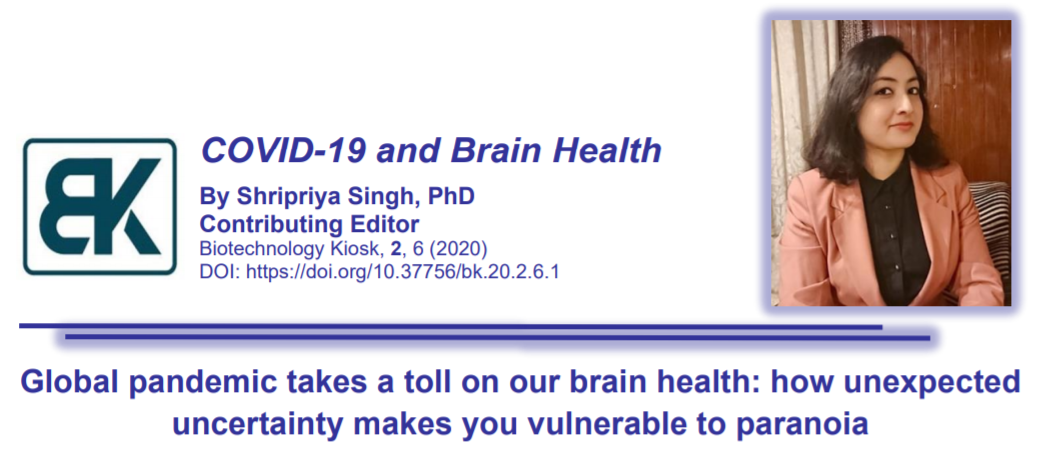COVID-19 and Brain Health
July 20, 2020COVID-19 and Antibodies
July 20, 2020Abstract
Human beings are susceptible to their changing social environments and these changes take a toll on our brain health. In a state of crisis such as the global pandemic Covid-19 we have experienced random unexpected uncertainty which can lead to induced paranoia in healthy individuals. Paranoia is a key symptom of serious mental illness, characterized by the belief that other people have malicious intentions and that harm will occur due to the deliberate actions of others. Although it also exists in normal populations but gets triggered more in cases of stress, social threats, drug abuse and personality disorders. Here we discuss a study which employed computational modeling and reversal learning behavior to estimate belief updating across online participants, individuals with and without mental illness and rats chronically exposed to methamphetamine, an elicitor of paranoia in humans. This study is an attempt to unravel the underlying mechanism of paranoia and give possible cues towards the development of new treatments. If paranoia can be induced in model organisms without taking the social interaction into consideration it will simplify the research intricacies and will open new possibilities of a potential cure.
Keywords: Paranoia; brain health; methamphetamine; reversal learning behavior; Covid-19
To cite this article: Singh S; Global pandemic takes a toll on our brain health: how unexpected uncertainty makes you vulnerable to paranoia, Biotechnology Kiosk, Vol 2, Issue 6, PP: 4-9 (2020); DOI: https://doi.org/10.37756/bk.20.2.6.1
